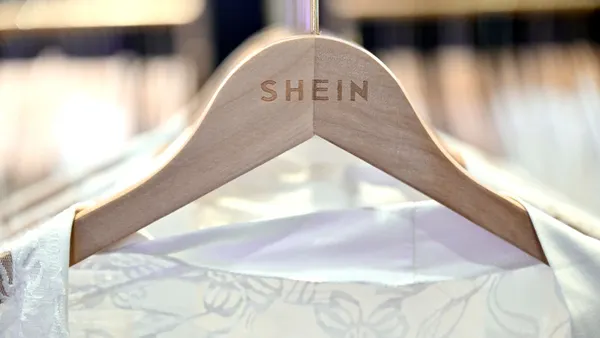Dive Brief:
- Lululemon announced a multiyear partnership with Australian tech startup Samsara Eco, which will allow the activewear brand to scale its circular efforts through textile-to-textile recycling.
- The partnership with Samsara allows Lululemon to make what it refers to as “infinitely recycled” nylon and polyester — blends that are core to its products, the company said in a news release.
- The deal follows other experiments with alternative materials, including the debut of plant-based nylon shirts last month, as the activewear maker aims to create a circular ecosystem by 2030.
Dive Insight:
Lululemon and Samsara will create new recycled nylon and polyester from apparel waste. The partnership is Lululemon’s first minority investment with a recycling company, and it is Samsara’s largest partnership with an apparel manufacturer.
Lululemon declined to provide additional financial details on its investment in Samsara.
“Our goal with this new innovation is to create lower impact products without compromising on fit, feel, and performance,” Yogendra Dandapure, vice president of raw materials innovation at Lululemon, said in an email. “We’re focusing on creating and testing a successful fabric for both nylon and polyester beginning this year to inform future scaling and product plans.”
In the press release, Dandapure said nylon was the company’s “biggest opportunity” to reach its sustainability goals. Nylon is the second most used material behind polyester for the activewear company, comprising about half of all of its material, according to Fast Company.
Samsara’s tech uses enzymes to attack polymers and revert them back to their original simple monomers, according to its website. The company says this allows for the creation of new plastics without the use of fossil fuels.
“The ability to infinitely recycle textiles, including nylon, is an essential solution to tackle the enormous challenge of textile waste in the apparel industry,” Paul Riley, CEO and founder of Samsara Eco, said in the release.
The move is the latest in a series of Lululemon’s “Be Planet” 2030 goals. Last month, it released its first products made with plant-based nylon in a partnership with Geno, a sustainable materials company that Lululemon had previously invested in. Lululemon has also been experimenting with Mylo, a material constructed from mycelium, the root structure of mushrooms.











